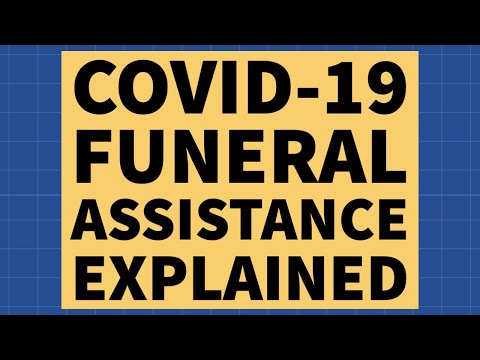What You Need to Know about Medical Malpractice Insurance Policies for Medical Assistants
Contents [show]
You’ve completed your medical assisting program and are now ready to enter the workforce. But before you can start your new job, you need to have the right medical malpractice insurance policy in place.
Checkout this video:
What is medical malpractice insurance?
Medical malpractice insurance is a type of insurance that medical professionals, such as doctors and Medical assistants can purchase to help protect themselves from being sued for negligence. If a patient feels that they have been harmed due to the actions of their medical assistant they may file a lawsuit against the assistant and/or their employer. Medical malpractice insurance can help cover the costs of defending against such a lawsuit, as well as any damages that may be awarded if the assistant is found to be liable.
Do Medical Assistants need medical malpractice insurance?
Medical assistants are increasingly being relied upon to perform a variety of tasks in medical offices, from taking patient histories and administering medications to scheduling appointments and handling billing. As the responsibilities of medical assistants have grown, so too has the risk of them being sued for alleged medical malpractice.
While most medical assistants work in offices that are protected by the employer’s medical malpractice insurance policy, there are some instances in which a medical assistant may be sued as an individual. In these cases, it is important for medical assistants to have their own medical malpractice insurance policy in place.
Medical malpractice insurance policies for medical assistants typically cover both negligent acts and errors and omissions. Negligent acts are those which fall below the standard of care that a reasonable medical assistant would exercising in a similar situation. Errors and omissions, on the other hand, refer to instances in which a medical assistant fails to do something that they should have done or does something that they should not have done.
Policies also differ as to whether or not they provide coverage for defence costs and damages arising from settlements or judgments. Some policies will cover defence costs regardless of whether or not themedical assistant is found to be liable, while others will only provide coverage if the assistant is found to be liable. Policies also differ as to the maximum amount of coverage that they provide.
When choosing a policy, it is important for medical assistants to consider both their individual needs and the needs of their employer. If you are employed by a doctor or other healthcare professional who is already covered by a medical malpractice insurance policy, you may not need your own individual policy. However, if you work independently or if your employer does not have their own policy in place, it is essential that you purchase your own policy.
How much does medical malpractice insurance cost?
The price of medical malpractice insurance for medical assistants will vary depending on the type of policy, the coverage, the deductible, and the state in which you practice. Your best bet is to get quotes from several different insurers to find the policy that is right for you.
How do I get medical malpractice insurance?
There are a few ways to get medical malpractice insurance. You can purchase it from an insurance company, get it through your employer, or join a professional organization that offers it. Some states also have malpractice pools that physicians can join.
When you purchase medical malpractice insurance, you will first need to decide how much coverage you want. This will depend on the type of work you do and the risks involved. You will also need to decide whether you want “occurrence” or “claims-made” coverage. Occurrence coverage protects you for incidents that occur while the policy is in effect, even if you file the claim after the policy has expired. Claims-made coverage only protects you for incidents that occur while the policy is in effect and that are reported while the policy is still in effect.
Once you have decided how much and what type of coverage you want, you will need to shop around for the best rate. Insurance companies use different criteria to determine rates, so it’s important to compare rates from several companies before you purchase a policy.
You can also get medical malpractice insurance through your employer. Some employers purchase group policies that cover all of their employees. Others may require that you purchase your own policy. If your employer requires you to purchase your own policy, they may offer discounts or other incentives if you purchase it through their company.
You can also get medical malpractice insurance through professional organizations such as The American Medical Association (AMA) or The American Nurses Association (ANA). These organizations offer group rates on medical malpractice insurance to their members.
Some states have malpractice pools that physicians can join. These pools are usually sponsored by state medical societies or associations and offer group rates on medical malpractice insurance.
What does medical malpractice insurance cover?
As a medical assistant, you may be wondering if you need medical malpractice insurance. The answer to this question depends on a variety of factors, including the state in which you work, the type of facility in which you work, and your specific job duties.
In some states, medical assistants are considered healthcare providers and are required to have medical malpractice insurance. Even if your state does not require medical assistants to have this type of insurance, your employer may still require it as a condition of employment. If you are not sure whether or not your employer requires medical malpractice insurance, you should check with your human resources department.
Medical malpractice insurance typically covers damages that are the result of negligent care by a healthcare provider. This means that if you are found to have provided care that fell below the accepted standard of care and as a result, a patient is injured or dies, your medical malpractice insurance policy would likely cover the damages.
While medical malpractice insurance is not required for all medical assistants, it is something to consider if you want to protect yourself from potential financial damages that could result from negligent care.
What is not covered by medical malpractice insurance?
There are some coverage gaps in medical malpractice insurance policies. It is important for medical assistants to know what these gaps are so they can protect themselves.
Here are some of the things that are not typically covered by medical malpractice insurance:
-Pre-existing conditions: If you saw a patient for a problem that happened before you got your policy, your medical malpractice insurance will not cover you if the patient sues you for malpractice related to that problem.
-Intentional harm: If you intentionally harm a patient, your policy will not cover you. This includes cases where you prescribe the wrong medication or give a patient the wrong treatment on purpose.
-Criminal acts: If you are charged with a crime, your policy will not cover you. This includes cases where you are accused of fraud or Medicare fraud.
-Alcohol and drugs: If you are intoxicated while seeing a patient, your policy will not cover you. This also includes cases where you prescribe controlled substances to a patient who then becomes addicted.
How can I reduce my risk of being sued for medical malpractice?
You can help reduce your risk of being sued for medical malpractice by understanding the types of insurance policies available and selecting the coverage that best meets your needs.
There are two main types of medical malpractice insurance: occurrence policies and claims-made policies. Occurrence policies cover you for any incidents that occur while the policy is in effect, regardless of when the claim is made. Claims-made policies, on the other hand, only cover incidents that occur and are reported while the policy is in effect.
Most insurance companies offer both types of coverage, so be sure to compare policies before selecting one. When comparing policies, pay attention to the policy limit (the maximum amount the policy will pay out), the deductible (the amount you would have to pay out of pocket before coverage kicks in), and the premium (the annual cost of the policy).
The best way to reduce your risk of being sued for medical malpractice is to practice good medicine and document everything thoroughly. In addition, regular attendance at continuing medical education courses will help you stay up-to-date on new developments in your field and make sure you are using the most current standards of care.
What should I do if I am sued for medical malpractice?
If you are sued for medical malpractice, it is important to stay calm and contact your medical malpractice insurance carrier immediately. Your insurance carrier will have a team of attorneys who will be able to help you through the process and represent you in court if necessary. It is important to remember that even if you are found to be at fault, your insurance policy will pay for your legal costs up to the limit of your policy.
What are the consequences of not having medical malpractice insurance?
As a medical assistant, you are an important part of the healthcare team. You work directly with patients, providing care and support, and you play a vital role in ensuring that the medical office runs smoothly.
While you may feel confident in your abilities, it’s important to remember that even the best medical assistants can make mistakes. If a patient is injured or dies as a result of a mistake you made, they may decide to sue the doctor or practice where you work.
If you don’t have medical malpractice insurance, you could be held personally responsible for any damages that are awarded in a lawsuit. This means that your personal assets, such as your savings and your home, could be at risk.
While it’s not required by law for medical assistants to carry medical malpractice insurance, most employers will require it as a condition of employment. If you don’t have coverage, it may be difficult to find a job as a medical assistant.
Even if you are covered by your employer’s policy, it’s important to understand what is and is not covered. Most policies have limits on the amount of coverage they provide, so if you are sued for more than the policy limit, you could still be held responsible for the difference. In addition, many policies exclude certain types of claims from coverage, such as those arising from criminal acts or fraud.
The best way to protect yourself from the financial consequences of a lawsuit is to purchase your own personal medical malpractice insurance policy. This way, even if you leave your job or your employer’s policy doesn’t cover the claim against you, you will still be protected.
How can I find the best medical malpractice insurance policy for me?
Comparing medical malpractice insurance policies can be confusing, but it’s important to find the right coverage for your needs. Here are a few things to keep in mind when you’re shopping for a policy:
-Your state’s laws: Every state has different laws governing medical malpractice claims, so you’ll want to make sure you understand the rules in your state before you purchase a policy.
-The type of care you provide: If you provide high-risk care, such as surgery or childbirth, you’ll need a policy with higher coverage limits than if you provide low-risk care, such as family practice or Pediatrics.
-Your budget: Premiums for medical malpractice insurance can vary widely, so it’s important to find a policy that fits your budget. Keep in mind that the cheapest policy might not offer the best coverage for your needs.
-The size of your practice: If you have a large practice, you may need a policy with higher coverage limits than if you have a small practice.
-Your claims history: If you have several years of experience without any claims against you, you may be able to get a discount on your premium.







